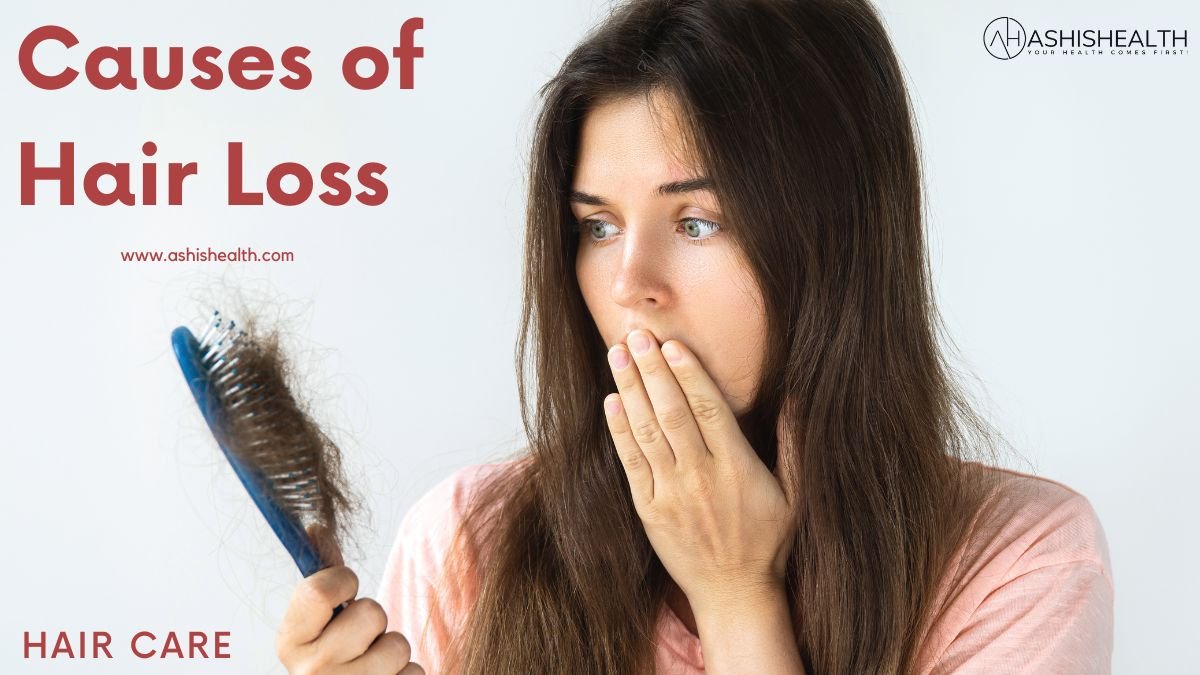There are many causes of hair loss, whether it be baldness or notably split ends. When a health issue is appropriately handled, hair loss can occasionally be a symptom that has to be resolved and will go away on its own. It’s crucial to visit a specialist if you have balding or thinning hair in order to determine the cause of the issue and the best way to prevent causes hair loss or stimulate growth.
Your human body or even your head may be affected by hair loss, which can be either temporary or permanent. It may be brought on by genes, hormone imbalances, illnesses, or just the natural aging process. Anybody can have hair loss on their head, but men experience it more frequently.
15 Most Causes of Hair Loss
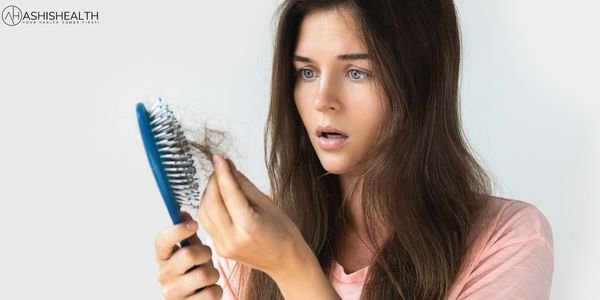
Hair generally refers to a lot of hair falling out of your scalp. The most frequent cause of baldness is age-related hereditary hair fall. Most folks would rather let their disorder progress unchecked and uncovered. Some people may hide it with their wigs, cosmetics, hats, or wraps. Other people decide on a procedure to stop additional hair loss or encourage growth.
Hormonal Imbalances

The hormonal fluctuations brought on by maternity, breastfeeding, menstruation, and thyroid issues are just a few of the situations that can cause long-term or temporary hair loss. It impacts the immune system and results in fungus on the scalp, uneven hair loss, and dermatillomania, a condition in which people pull their hair out.
Androgens may weaken hair cells in women with woman baldness, which also results in excessive hair loss. On the other hand, a rise in a steroid called dihydrotestosterone is connected to male pattern hair loss (DHT). Green claims that DHT may shorten a hair’s total life span in addition to binding to hair cells and inhibiting hair development.
Thyroid Problems
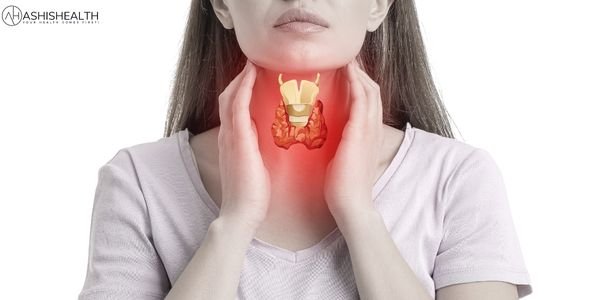
The production of hair is one of the many bodily processes that thyroid hormones help control. Hair loss may also be exacerbated by thyroid-related symptoms such as Rheumatoid and Graves’ disease.
Because each ailment results in hormone levels, baldness can be brought on by either an iodine deficiency (medically referred to as hypothyroidism) or a hyperactive thyroid (hyperthyroidism).
Pregnancy

Excessive shedding can extend six to fifteen months after delivery since not all hair cells in the resting state during maternity will switch to the releasing process at once. Pregnancy causes an increase in estrogen levels, which may briefly change the phases of cell growth. You’ll probably lose less hair than usual during this period.
Your hair cells will heal along with the remainder of your body. Your hair will regrow after the transient hair loss. Perinatal hair loss isn’t precisely prevented, but you can lessen the issue by being gentle with your hair and getting your vitamin supplements as directed.
Certain Medications

Beta and potassium circuit inhibitors, contraceptive pills, anti-inflammatories, anxiety medicines, blood thinners, and contraceptives are just a few of the drugs that can cause hair loss or baldness. Baldness can also be brought on by taking retinol, a class of medications based on vitamin A, in excess amounts. As they seek to kill cancer cells, several chemotherapy medications are known to completely eradicate hair growth.
Contraceptive pills, antidepressants, anti-inflammatories, beta and sodium circuit inhibitors, and medicines for anxiety can all cause balding or fine hair. Baldness can also be brought on by taking retinoids, which are vitamin A-based medications, in excess amounts. As they seek to kill cancer cells, several chemo medications are known to result in complete hair loss.
Alopecia areata is the scientific word for a disease wherein your immune cells assault and kills your hair cells, preventing the development of new hair. Alopecia areata is also known as hair loss or alopecia. As well as hair fall and androgen, alopecia areata is a medical condition.
Stress or Illness
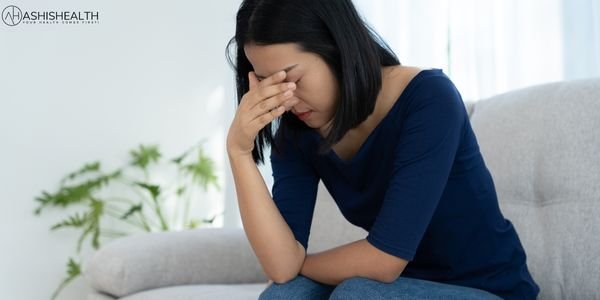
Extreme levels of stress, like getting sick or having surgery that exerts pressure on the heart and brain, can cause hair loss.” In contrast to the approximately ten to twenty-five percent of hair follicles that are typically in the germ cells state, “many experience severe germ cells excess mucus, wherein up to 60% of hair follicle go into a dormant condition.”
Stressful experiences including losing a beloved one, getting treatment, or receiving a serious health diagnosis can all increase your risk for baldness. However, baldness can be unpleasant in and of itself, which can create a vicious cycle.
Protein Deficiency

Sometimes, a lack of dietary protein might cause hair to fall out. Protein deficiency can occur in some persons who follow extreme diets that cut out protein or who engage in strange eating patterns. The body will then transfer developing hairs through into the dormant stage in order to conserve protein.
Luckily, you can reverse the consequences of starvation on your hair as you maintain dietary consistency for at least six months. Your hair will start growing again once the shortages have been fixed, however, it can take some time.
Female and Male–Pattern Baldness

For both men and women, regular baldness is the most typical form. Without many scalp or dermatitis abnormalities, the afflicted scalp hair often has a distinctive pattern. For as much hair to be preserved as possible, early diagnosis and prevention can help stop the disease’s progression. Treatments using drugs and those without have both been effective.
Male and female cycle baldness is a gradual, non-scarring type of dermatitis that primarily affects the middle scalp in women and the lateral, temporal, and vertex regions of the scalp in men.
Low Iron Levels

Yes. Iron deficiency-related hair fall can typically be restored. If you believe that hair loss you’ve been suffering may be caused by a lack of iron
Hair loss in conventional every person patterns can resemble iron deficiency baldness.
Iron may not only contribute to hair fall, but it might also make hair fall down in a way that resembles the hereditary baldness seen in both men and women.
A person who either does not contain enough iron in his body or whose body cannot use iron efficiently develops anemia. Many persons sometimes have hair loss as a result of acute iron shortage anemia, which can also result in sensations including weariness, difficulty breathing, and breathing problems.
Lupus

An autoimmune condition known as lupus produces weariness, joint discomfort, tightness, and a facial rash in the form of a butterfly. Additionally, some lupus sufferers lose their hair.
Not all lupus patients lose their hair. The hairline, however, often organized groups shortening or breakage in those who have this problem. The regrowth of hair might occur occasionally or not. The cells in your scalp are unable to retain or regrow when lupus destroys your skin. If the process is progressive enough, you might not recognize it until you view a picture of yourself taken a few years earlier when your hair was thicker. Alternatively, you might notice extra strands in your hairbrush or comb to serve as proof.
Trichotillomania
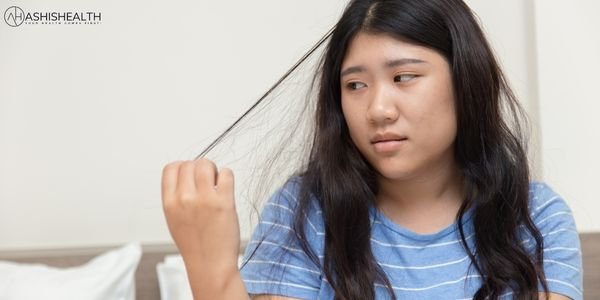
Trichotillomania is the compulsive desire to remove one’s own hair. Any part of the body can have hair tied up out, although the most obvious areas are the eyelids, eyebrows, and head.
The impulse to take out hair can be unbearable in someone with trichotillomania, but losing hair is just as terrible. Although if they are unable to quit pulling, some patients go to considerable efforts to conceal pulled regions.
When you suffer from trichotillomania, it could be challenging for you to decide how to handle the circumstance. On just one side, you can’t resist ripping out all the hair since they want to do so is so strong. On the other side, having a noticeable bald spot can make it awkward to be seen in public.
Extreme Hair Care
Hair fall can result from frequent washing, blow-drying, use of overheated styling products, tugging on hair (when blow-drying it or arranging it in an as well ponytail, for example), and violently scratching the scalp. Damage-related hair loss may also be facilitated by hair products, hairdos, and hair colors.
Polycystic Ovary Syndrome

A hormone imbalance known as polycystic ovarian syndrome (PCOS) frequently affects women and can result in hormonal problems, or excessive facial and body hair. While many people with PCOS develop thicker facial and body hair, others may suffer hair thinning and loss, which is known as female pattern hair loss.
Androgenic alopecia is the term used to describe hair thinning brought on by the actions of androgens. Women experience serious psychological discomfort as a result of it. Polycystic ovarian disease (PCOS), renal dysfunction adenoma, and other illnesses of increased male hormones are frequently associated with this male-pattern hair fall in women.
Over-Styling
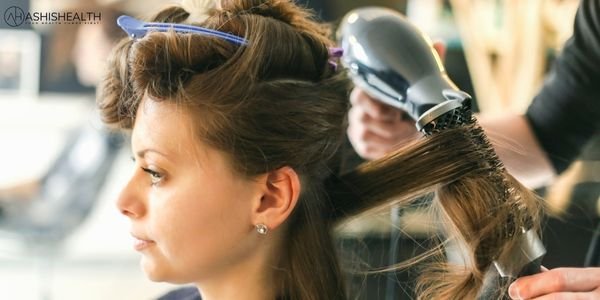
Definitely, Over-styling your hair can harm the scalp, which results in weaker hair growth in the short term and ultimately resulted in a complete lack of hair growth in the afflicted area. There may be a number of causes for hair loss, including temperature, moisture, hereditary, hormone imbalances, aging, stress, and other medical disorders.
The four hairdos that could harm your hair are dreadlocks, tight ponytails, enhancements, and knots. This type of hair loss, known as “pulling alopecia,” is brought on by damage to the hair cells as a result of frequent hair pulling. In addition to damage, having tight hair throughout time may result in irreversible hair loss.
Anabolic Steroids
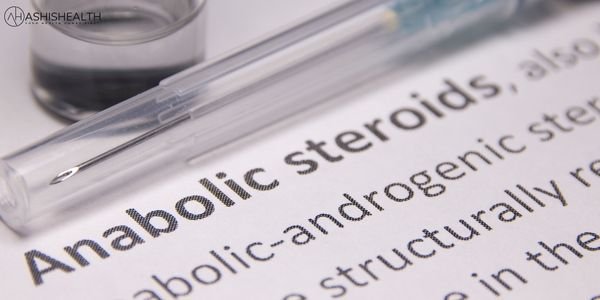
The medical community is most familiar with two types of steroids: anabolic steroids and cortisone.
A vast list of illnesses can be treated with corticosteroids, including infections, rheumatic problems, blood abnormalities, eye problems, and skin problems.
The main effect that anabolic steroids are known to have on hormonal changes. Hormonal changes are the cause of issues with a disorder known as androgenetic, often known as baldness in men.
which vitamin deficiency causes hair loss
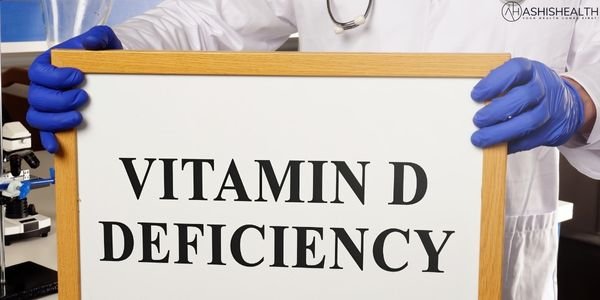
Iron helps produce blood, which aids in supplying oxygen and minerals to hair growth. The hair won’t grow if there isn’t enough iron, which leads to thinning hair over time.
- Vitamin D: Hair may become fragile or quit growing if vitamin D levels are low.
- Zinc: A zinc shortage can result in baldness comparable to that from micronutrient deficiencies, as well as damage and breakage of any surviving hair.
- Selenium: When it happens, it could interfere with how the thyroid works, which can lead to imbalance and hair loss.
FAQ’s
How can I stop my hair from losing?
Here are some tips to stop hair from losing:
- Take in more protein. Your daily protein intake may not be adequate, which could hinder hair development.
- Your hair development may be impacted by a number of minerals and nutrients including magnesium, iron, and vitamins A, B, C, D, and E.
- Refrain from using harsh hair care products including hair products, ironing, and heating equipment. Your hair might also be affected by hairstyles like tight ponytails or knots.
What lack of vitamins causes hair loss?
- Hair loss has only been linked to deficits in thiamine, biotin, folic, and vitamin B12.
- Vitamin D: Hair may become fragile or quit growing if vitamin D levels are low.
What is causing female hair loss?
Women who suddenly lose a lot of hair are said to be experiencing hair fall. Humans typically lose between 60 and 100 individual hairs each day. Hair loss is a natural process in which some hairs break out and new hairs grow in. Hair loss occurs when the harmony is upset—when reduced hair grew back in and more hair falls out. Hair falling is not the same as hair loss. Alopecia is the scientific word for hair loss.
Can hair regrow after hair fall?
Three cycles occur in hair regrowth
- Between two to seven years are typical for the maturation stage (growing phase). Between 80% and 95% of the hair on the scalp is typically referred to as this period.
- Around three to four weeks pass during the catagen phase (transition phase), during which moment hair cells decrease.
- It takes between two and four months to complete the germ cells phase (resting phase). The hair begins to fall out after this stage.
Which shampoo is best for hair fall?
Among the most prevalent problems for both men and women is hair loss. There may be a number of causes for hair loss, including temperature, moisture, hereditary, hormone imbalances, aging, stress, and other medical disorders. It can be challenging to select the finest shampoo for your hair type because so many businesses produce products with hair fall as their primary priority. To assist you in purchasing the best shampoo to stop hair loss.
Also Read: 12 Habits to Live a Long Life


